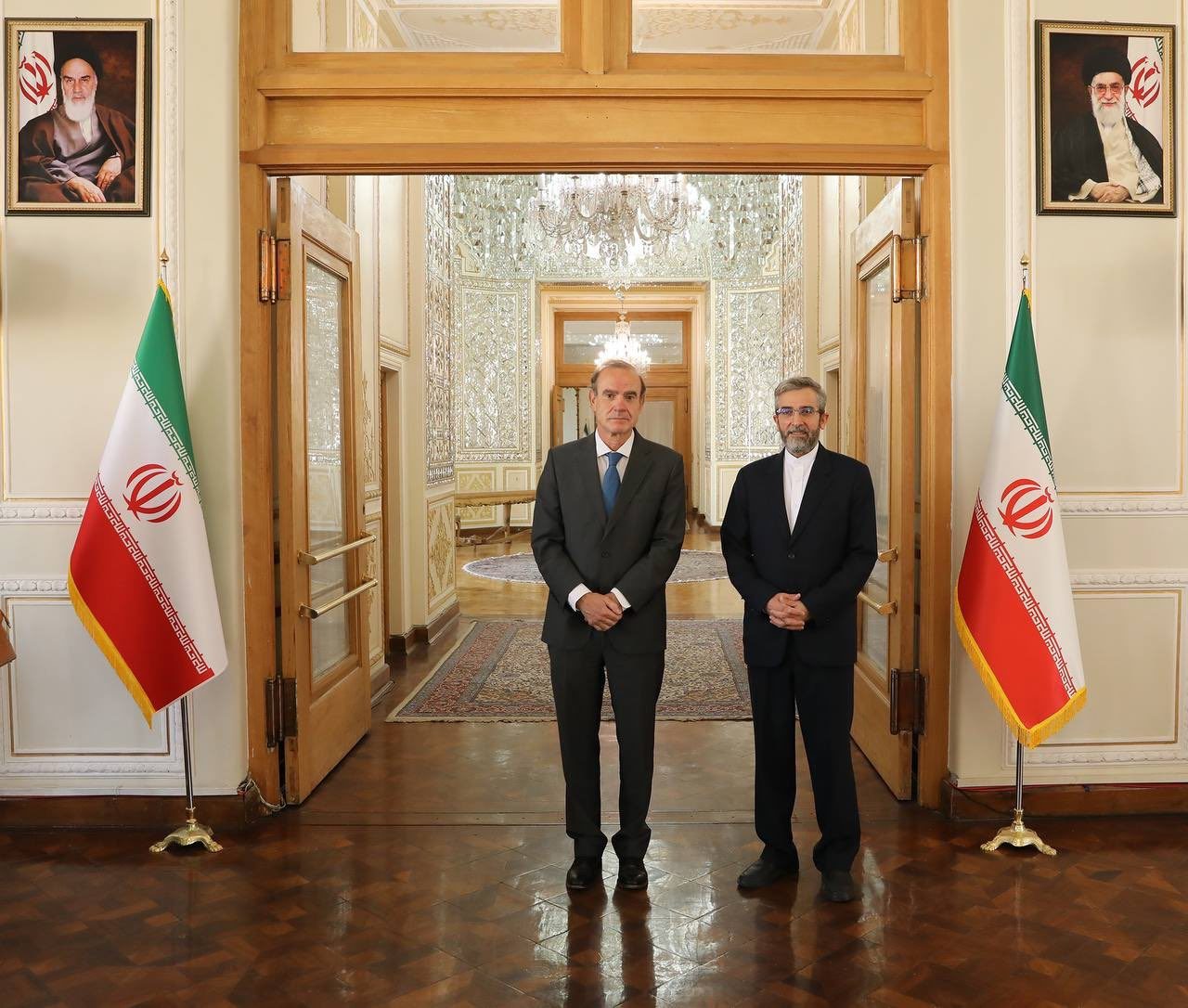The last round of indirect US-Iran talks took place in June.
Talks between Iran and world powers to restore the 2015 nuclear deal will resume by the end of November following months-long delay, Tehran’s nuclear negotiator Ali Bagheri Kani said on Wednesday.
This came following “preparatory” talks Brussels between the Iranian official and EU nuclear negotiator Enrique Mora this week.
“Had a very serious & constructive dialogue with Enrique Mora on the essential elements for successful negotiations. We agree to start negotiations before the end of November. Exact date would be announced in the course of the next week,” tweeted Bagheri Kani.
had a very serious & constructive dialogue with @enriquemora_ on the essential elements for successful negotiations.
We agree to start negotiations before the end of November. Exact date would be announced in the course of the next week. https://t.co/0A7BOPZh8f— علی باقریکنی (@Bagheri_Kani) October 27, 2021
Responding to the Iranian nuclear negotiator’s remarks, White House press secretary Jen Psaki said the US is waiting for confirmation from European officials over Tehran’s readiness to resume the talks.
“I will leave it to the negotiators to determine when the next round of discussions will be. Our framing continues to be for compliance, and we’ll leave it up to the Europeans and our negotiators to determine when the next step will be,” said Psaki.
Indirect US-Iran talks kicked off in Vienna in April this year to revive the 2015 nuclear accord. This ended after the sixth round in June ahead of the election of Iranian President Ebrahim Raisi.
The talks were seen as part of US President Joe Biden’s efforts to reverse foreign policies of former President Donald Trump, who withdrew Washington from the Joint Comprehensive Plan of Action [JCPOA] to apply “maximum pressure” on Iran.
This led to further implementation of economic sanctions on Tehran, prompting it to increase its nuclear enrichment.
However, the Islamic Republic defended its decision by maintaining its nuclear programme is peaceful.
Iran’s Foreign Minister Hossein Amirabdollahian said on Wednesday that talks must lead to the lifting of sanctions.
“Biden has to put his goodwill into practice by for instance releasing $10 billion of Iran’s blocked assets,” Amirabdollahian said.
He also said that while Iran does not “want to enter the Vienna talks from the point of deadlock”, it accepts “the format” of the negotiations. The Iranian foreign minister also said the date will be decided after assessing discussions between Bagheri Kani and Mora.
Russia’s representative at the talks Mikhail Ulyanov said existing doubts “among journalists, analysts, observers, proponents and opponents of the nuclear deal” should be put aside by negotiators.
“Participants in the Vienna Talks should put them aside and proceed from the understanding that they are obliged to succeed because extremely important things are at stake,” tweeted Ulyanov.
Countries have been calling for the revival of the JCPOA and for the US and Iran to engage in diplomacy.
In Qatar, officials have been expressing the Gulf state’s support for the resumption of negotiations to restore the JCPOA while offering to mediate between the US and Iran.
“Regarding the nuclear deal, we call on all sides to return to negotiations as soon as possible and try to reach an agreement that will contribute to ensuring peace and security in our region,” said Qatar’s Foreign Minister Sheikh Mohammed bin Abdulrahman Al Thani in a press conference in Doha on Wednesday alongside his Austrian counterpart Michael Linhart.
The Islamic Republic’s economy has taken a hit following years of US sanctions as well as the coronavirus outbreak last year.
In 2020, Iran’s gross domestic product [GDP] shrunk by 5%, more than one million people lost their jobs and the Iranian rial lost more than half of its value against the dollar.
In February this year, inflation stood at 48%, almost double what it was in the same period last year.
However, the World Bank said earlier this month that Iran’s economy has been witnessing “a moderate recovery” over the past year as countries ease Covid-19 lockdowns, leading to a 3.4% growth in the GDP.
“Iran’s economic outlook is shaped by the expectations about the course of the pandemic, the recovery in demand from export partners, and geopolitical developments,” said the World Bank.
Follow Doha News on Twitter, Instagram, Facebook and Youtube







